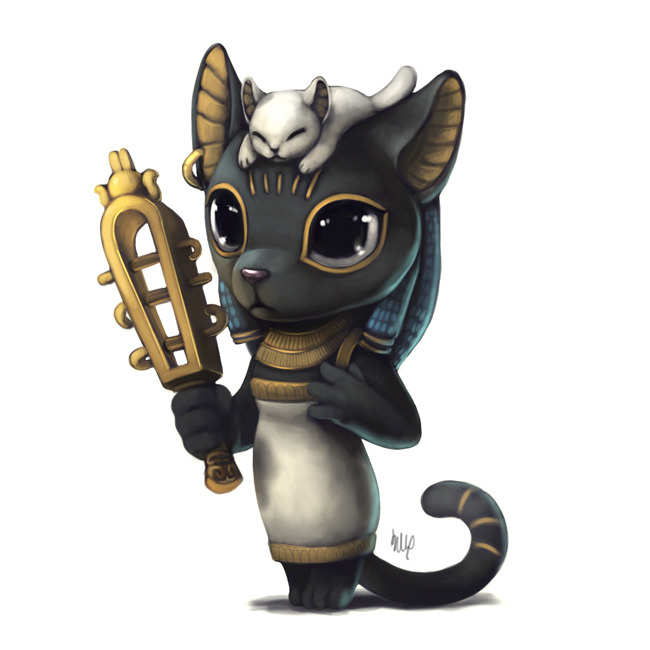For those of you who watched the Super Bowl, I hope you were happy with the outcome. My thoughts were two-fold:
1. The orange guys won! Woo? (I don't watch much American football, if you couldn't tell...)
2. I tuned in too late to see the Civil War trailer, so I had to YouTube it after the show. Curses! Ah well.
On with the myth part of the blog!
If you've read my post about The White Cat, you probably know that I'm a cat lover.
In fact, as I'm typing this my blind kitty has just rolled upside down in her cat bed and is begging for belly rubbings. Excuse me for a minute.
Alright, I have returned! On with the post.
At any rate, I love most critters, but cats have always held a special place in my heart. Because of this I rather adore Egyptian mythology, because it has a cat goddess.
That goddess' name is Bast (also sometimes called Bastet), and she is rather fantastic. Let me tell you about her.
Cats are rather fickle creatures. They can be gentle and affectionate one minute, then fearsome hunters the next. They demand, beg, or disdain everything from food to love to chew toys (all of which my hands have been used for...). Bast is intriguing because she represents these multiple aspects of feline nature.
For starters, Bast is a goddess associated with dance and music. She is frequently depicted holding a musical instrument called a sistrum, a sort of rattle. Festivals to Bast were lively and featured much drinking, dancing, and merriment.
On the other hand, Bast is also a goddess of vengeance. She is the daughter of Ra, god of the sun, and is shown to be the defender of her father in numerous occasions. She can be wrathful and fierce, and she strikes fear into the hearts of her enemies.
Bast was also thought to be a protector of pregnant women, and was associated with both hearth and home.
Interesting mix, right? I think it rather suits her feline persona.
I'll see you guys next week with a special holiday themed post!



No comments:
Post a Comment